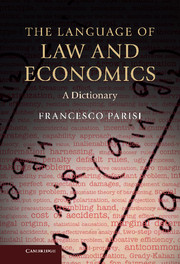A
Published online by Cambridge University Press: 04 August 2017
Summary
Above-average effect: a cognitive bias, also known as the illusory superiority bias, that leads people to overestimate their positive qualities and underestimate their defects. Evidence of the above-average effect is quite robust with respect to common abilities and tasks (e.g., driving, parenting, managerial skills) but weaker with respect to unusual tasks. An above-average effect may distort one’s perception of difficulties. Behavioral economists classify the above-average effect under the category of “positive illusions” (i.e., unrealistically favorable perceptions about one’s self) (Taylor and Brown, 1988). As with other positive illusions, such as unrealistic optimism and illusion of control bias, the above-average effect may undermine estimations of risk and lead to a distortion of incentives. See also optimism bias, illusion of control bias, and Hurwick optimism–pessimism index.
Absolute advantage: a person or a firm is said to have an absolute advantage when it can produce a good or service at a lower cost than its competitors (or more quantity at the same cost). The term “absolute advantage” may be a useful descriptor when making comparisons between firms; however, being the best at producing something and having an absolute advantage over other producers does not mean that undertaking such activity is the best way to use one’s productive capacity. The criterion of absolute advantage fails to take into account the opportunity cost of using one’s productive capacity in a particular way. From a social efficiency perspective, the allocation of productive capacity and specialization should be determined by the concept of comparative advantage, not absolute advantage, in order to maximize all possible gains from trade. See also comparative advantage.
- Type
- Chapter
- Information
- The Language of Law and EconomicsA Dictionary, pp. 1 - 18Publisher: Cambridge University PressPrint publication year: 2013



